Student Outreach Projects
In 2021 Words Into Deeds established a small grants program whereby teachers could apply for financial assistance to set-up student outreach projects. Proposals required estimated budgets, numbers of students, fit with the Sustainable Development Goals, and plans for empowering students to become independent workers and entrepreneurs and for the projects to become self-sustaining. Thus far, ten projects have been supported for up to $150 (renewable), with students from all grade levels participating. In 2022, recognizing that the year-long mandated 6-days/week of classes limited the time students could work on their projects, additional support was provided for working on projects during the weeks between their trimesters.
Traditional Bead-Work To Support Education
The first Mini-Grant project drew upon teachers’ skills at traditional bead-making crafts. They taught students how to make beads from paper and then assemble them into jewelry and purses. The items were sold both within the Gulu community and in the USA. All proceeds have been invested in the UNIFAT School scholarship fund. From the first two sets of items produced, nearly $2000 was raised, and there are outstanding orders for additional items.
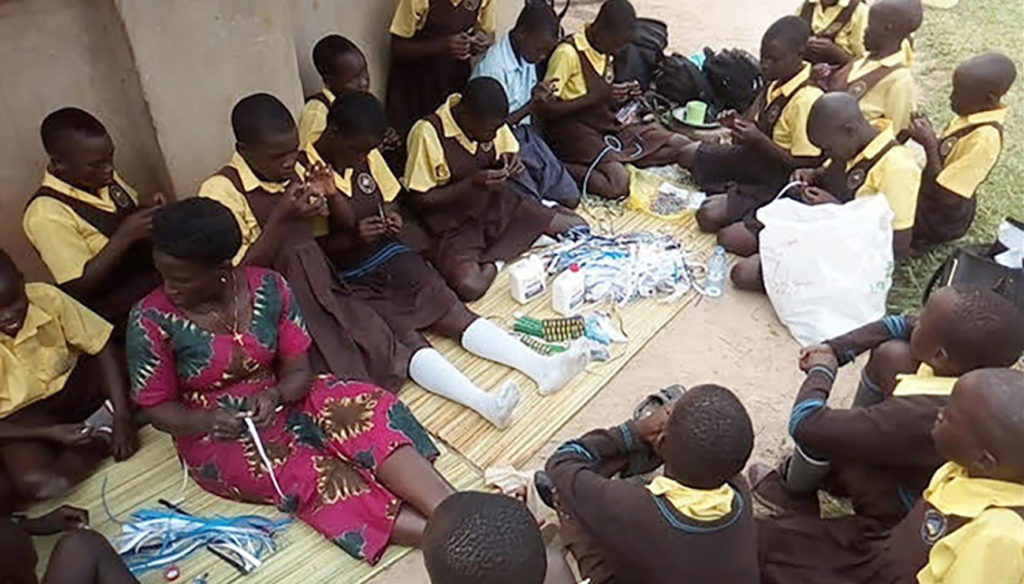
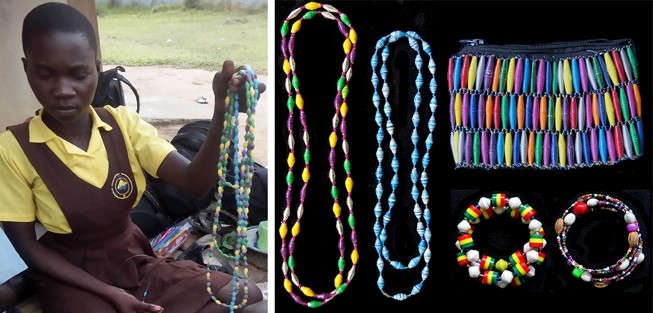
Plastics to Playground
It is exciting when two issues of interest to young persons come together as one project.
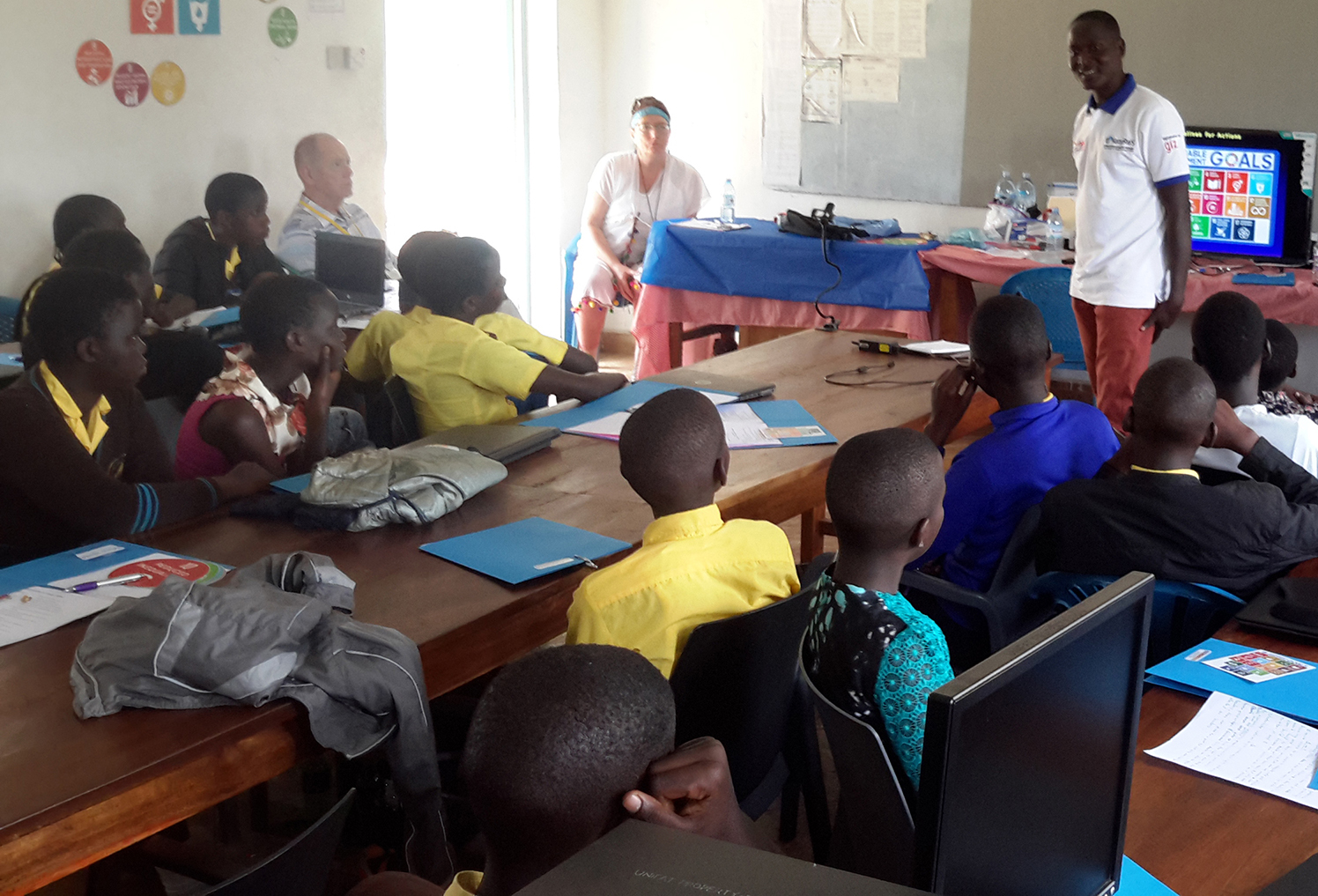
Clifford introducing ways that students can help to clean up their campus and city and, at the same time, raise money for school projects.
During the April, 2022 Words Into Deeds student workshop, one session focused on SDG 12: Responsible Production and Consumption, and highlighted issues associated with plastic waste. The guest speaker was Ochan Clifford from Takataka Plastics of Gulu, Uganda. He introduced the global environmental problems associated with plastic waste, and highlighted Takataka’s program that pays for collected bottles and other forms of plastic and then refabricates them into furniture, tiles, facemasks, and other household items. It is the only organization in the region that does this. https://www.takatakaplastics.com/
He mentioned that they also fabricated playgrounds. This immediately caught the students’ attention, as UNIFAT has been looking for a way to get a playground for the youngest students.
Students launched a campus plastic clean-up and are exploring ways to reduce the use of plastics. During their school break, theyvisited the Takataka factory and, assisted by the science teachers at UNIFAT, are developing plans to form community collection teams.

Gardens to Support a Healthy Community
Working with experienced farmers and young entrepreneurs from CPA, students explored possible on-campus sites, cleared the land, then planted and nurtured their seedlings. The first planting was seeds of cowpea, which is a fast-growing legume common in Uganda. Leaf cuttings from their first crop were chopped and boiled together with okra, sesame seeds, and peanuts to make a hearty sauce called boo. This harvest provided lunches for students and staff, and part was sold to local green-grocery markets. This income provided revenue for a second planting that included onions, and with more students asking to be involved the campus now has three garden sites.
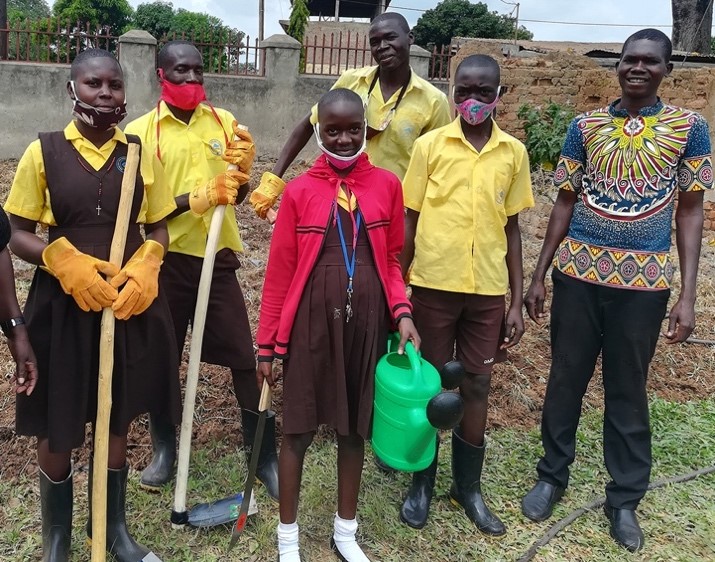
Soil preparation and first planting completed.
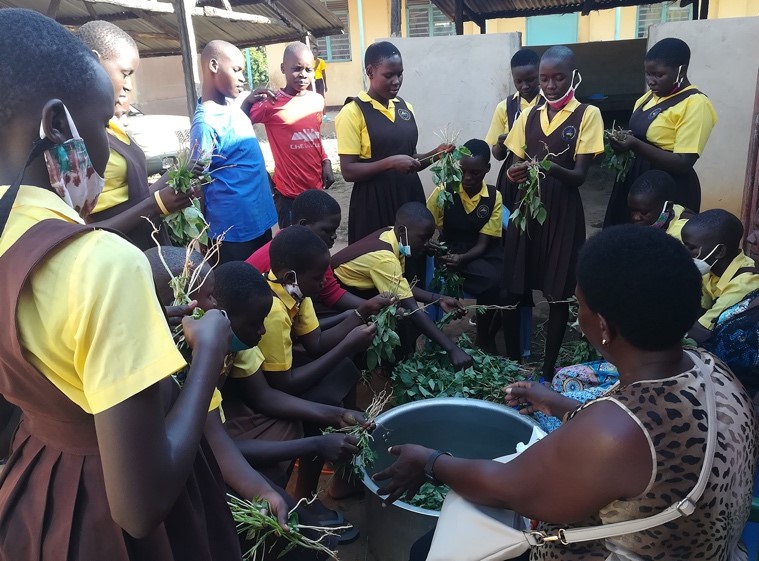
Harvesting and preparing to cook the first crop of cowpea leaves.
During recent visits to rural community farms, they learned principles of organic farming, crop management, and marketing.

Students visiting an organic farm learn how to choose the best sites and prepare soils for each type of crop.
In addition to vegetable gardens, students working under the supervision of Ochan Clifford, a CPA-trained horticulturalist and tree nursery owner, planted fruit tree saplings at several sites near the perimeter of the UNIFAT campus.

The UNIFAT team holding saplings ready for planting. Peter is at the back on the right wearing a red shirt.
Supporting SDGs 3 and 6: Health and Sanitation by Liquid Soap-Making
Ugandans have learned many lessons from previous experiences with HIV and Ebola infections, among them taking quick and early actions that include increased attention to sanitation. In earrly 2020 two teachers and groups of students applied for Mini-Grants to support these initiatives. One focused on obtaining masks and making liquid soap in personal-use-size containers for all students. The masks were made by Wawoto Kacel Cooperative Society workers.

The second project focused on liquid soap production with distribution to families in 6-ounce bottles and to community organizations (especially schools) in 5-liter containers. Profits from sales are used to replenish supplies. Both of these projects are expanding as part of the ongoing Health and Gender Equity Program.
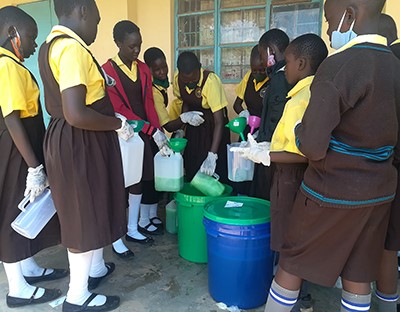
Students decanting liquid soap into 5-liter jugs that are sold to shops and schools, providing a sustainable revenue stream.
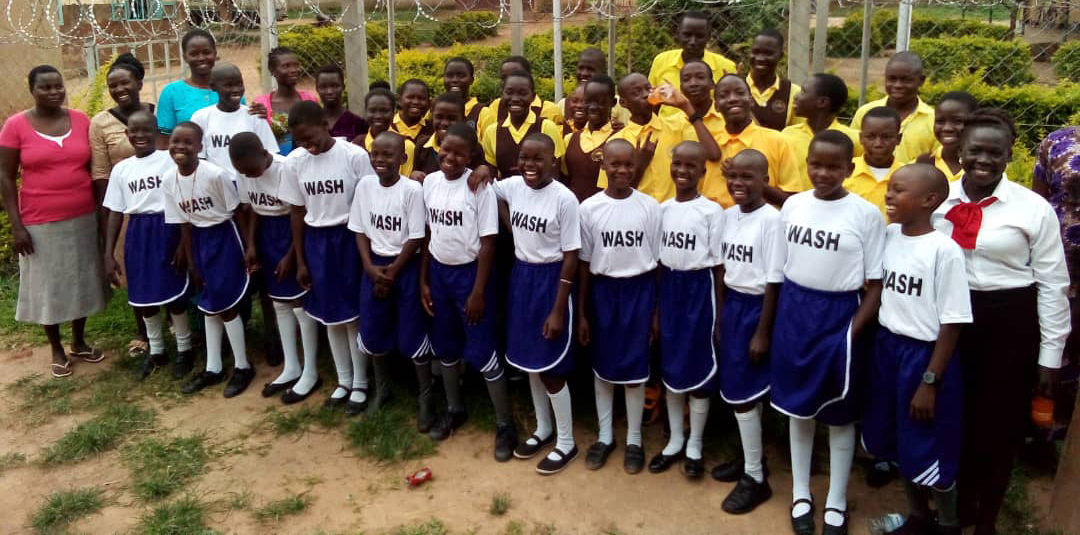
In 2022, students in UNIFAT grade 4 and 5 students designed a multi-media presentation that shows the importance of frequent hand-washing to reduce spread of diseases. This is being presented to students in other grades, and the students are planning on presenting it at other schools.
UNIFAT Newsletter: Reaching Out to the Community
Prior to the school closing, students from several grade levels worked together with two teachers and a community media specialist and applied for a Mini-Grant to establish a UNIFAT Primary School Newsletter that would be distributed to the community. Using the digital learning center, interviews and student-written essays and pictures were assembled and the first edition distributed in May, 2021 in both printed and electronic formats.

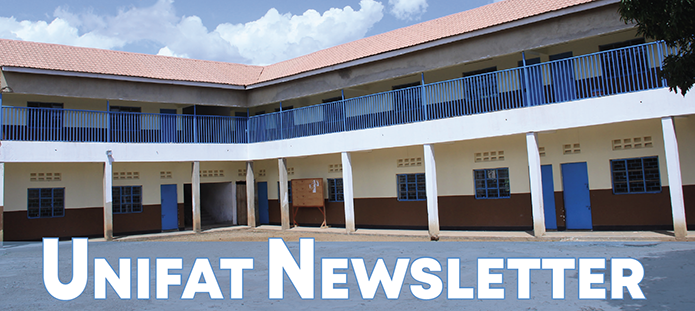
Because many of the original team graduated, a new team has been assembled. During the April, 2022 student workshops, a break-out session on journalism practices and skills was held, and the team is preparing a 2nd edition. Articles will feature UNIFAT students’ community outreach projects and visits with partner organizations.
